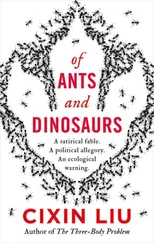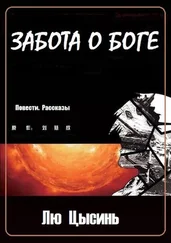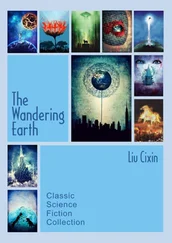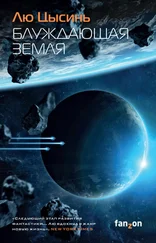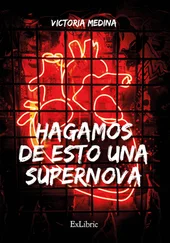Warily, the children entered the solemn, mysterious hall. Deep red carpets, snow-white armchairs arranged into a large semicircle, and behind them elegant embroidered silk screens and a magnificent cloisonné vase the size of a person… all of it was spotless, and they passed through air so still it felt like swimming through the phantoms of history.
“Wow. This is China’s White House?” Benes asked softly. Behind her, two other American kids were carrying a roll of paper, a full two meters long, and they set it gingerly on the carpet as the Chinese children looked on curiously.
“That’s right,” Xiaomeng said. “The adults used to receive foreign heads of state here. You know, this is our first time in here, too.”
“Your first time? Why didn’t you come before? You’re the supreme leaders of the country, so surely it ought to be your workplace.”
“We work in the NIT. I was kind of scared to come here, since it seemed like as soon as I came in I’d have all those pairs of adult eyes watching us from some place, like they were saying, ‘Children, you’re being stupid!’”
“I felt the same way my first time in the White House, but I got over it eventually. I don’t like adults watching us. Still, I’m really grateful that you’ve brought us here, because a historic meeting should be held in an exceptional setting so that we won’t feel embarrassed when it is written into the history books.”
The children sat down in the armchairs.
“Now we’ll explain the new world games,” Benes said.
Huahua shook his head. “You can’t simply place world games however you please. We’ve done them once with your idea, so now it’s time to listen to someone else’s.”
“Naturally we won’t force anyone to play our game. You can come up with your own rules, and we’ll use whichever is more fun. Do you have anything new?”
Xiaomeng shook her head. “We’ve got too many other things to do right now. The end of the Antarctic Games obliterated the children’s dream for a new world on that continent, and now a dark mood of loss and disappointment has descended upon all of society. There are signs of a reemergence of Candytown.”
Benes nodded. “It’s the same in the US. The streets are ringing with gunfire again, since violent games are the only way for kids to find thrills. Or any meaning in life at all. We really need a new game to give them some kind of spiritual support, so they can escape the current danger.”
“Very well,” Huahua said. “Then let’s discuss your new game.”
When Xiaomeng and Specs nodded their agreement, Benes’s excitement bubbled over. “Thank you! Thank you! Now, before we get to the idea of the game, I’d first advise you to mentally prepare yourselves for the shock of the unimaginable. We may have a far better tolerance for that than the adults, and our tolerance has only been strengthened by the supernova, but the shock we’re preparing will still be a challenge for our Chinese friends.”
“You’re bluffing,” Huahua said dismissively.
“You’ll find that out soon enough.”
“Then out with it.”
Now the young president grew nervous. She quickly crossed herself, and with her eyes half closed, she said, “God bless America,” in a voice audible only to herself. Then she leapt up from the chair and began to pace energetically, before stopping short and clasping her hands to her chest. She said, “First I’d like to make a request. Would our Chinese friends share with us your impressions of our country?”
The Chinese children’s remarks came out in a jumble:
“America is skyscrapers covered in mirror glass glittering in the sun.”
“In America, a river of cars flows morning till night, unceasingly.”
“America has Disneyland and lots of other fun places.”
“Americans love football.”
“American farms use huge machines, so one family can till a huge area!”
“In American factories, it’s all robots and assembly lines, and a whole car can be assembled in a matter of seconds!”
“Americans have been to the moon, and they want to go to Mars. They fire tons of rockets off every year.”
“America has lots and lots of nuclear weapons, and huge aircraft carriers. No one messes with them.”
The impressions shared by the Chinese children sketched a rough outline of America that happened to match exactly with what Benes had been hoping for. All was going according to plan, so she determinedly took the next step.
“I have long been aware that China is a great and mysterious country, but as a newly arrived guest, I know far less about your country than you do of mine. So let me ask you: Does your country have anything that’s better than ours?”
It was a challenging question, to be sure.
“Our country is huge. It covers an area of nine-point-six million square kilometers,” Huahua exclaimed.
“Ours is pretty big too: nine-point-three-six million square kilometers. But we’ve got more arable land than you, and more forest cover. Those are important things for a country,” Benes said solemnly.
“We have lots and lots of oil underground, and lots and lots of coal. And lots and lots of iron,” Xiaomeng said.
“So do we. Oil in the Gulf of Mexico, Alaska, and California. And we’ve got lots of places with coal. Pennsylvania, West Virginia, Kentucky, Illinois, Indiana, and Ohio all have tons of it. And there’s lots of iron under the southwestern part of Lake Superior, and copper in Arizona, Utah, Montana, Nevada, and New Mexico, and lead and zinc in Missouri. You haven’t got us beat in that area.”
“Well… we’ve got the Yangtze River. It’s the biggest, longest river in the world!”
“Not true in the slightest. The Mississippi is bigger. And one of its tributaries, the Ohio River, is over a thousand meters wide at its widest point. Have you ever seen a thousand-meter-wide river?”
“Does the Mississippi River have the Three Gorges?”
“No, but the Colorado does. We call it the Grand Canyon, and it’s magnificent!”
“You just memorized a geography textbook and came here to challenge us, is that it?” Huahua said angrily.
Now Benes squatted down beside the long roll of paper, untied the green ribbon holding it together, and gently unrolled it. It was a world map, one so big that when fully unrolled it occupied half of the floor space in the hall, but it was a peculiar one: the United States and China were the only two countries drawn, and the remainder of the map was water, giving them the look of two islands floating in a vast ocean. Benes jumped onto the map into the middle of the Pacific, and pointed a hand at each territory.
“Look at our two countries. We’re in opposition on either side of the globe, practically equal in area, more or less the same shape. It’s like we’re a pair of images reflected onto the Earth. And there really are so many things that are mirror images. For example, the two are the world’s oldest and the world’s youngest countries; one whose people have deep roots and ancient heritage, the other made up almost entirely of immigrants; one that stresses tradition, one that prizes innovation; one quiet and introverted, one outgoing and expansive. My Chinese friends, God put two such countries on the Earth. Don’t you think there’s a certain mystical connection between them?”
The words captivated her listeners, and they waited silently for her to show her final card.
The president walked across the map to the United States. From a pocket she pulled out a small, gleaming pair of scissors, and then, crawling on the map like a lizard on a wall, cut out first the United States, and then China. The map was so big that it took her quite a while to snip around the borders of the two countries under the astonished gaze of the Chinese children. Then she took the China cutout, crossed the map, and handed it to Huahua.
Читать дальше
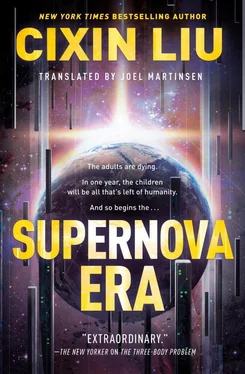
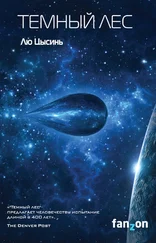
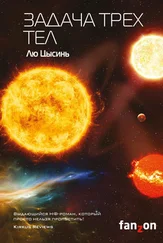
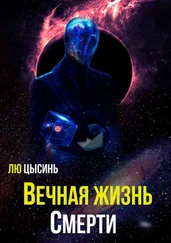
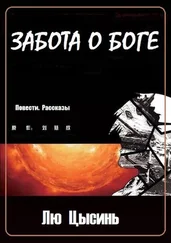
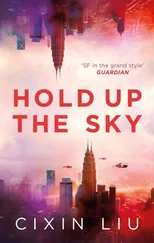
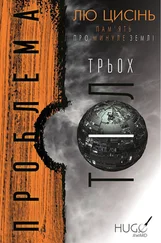
![Лю Цысинь - Эпоха сверхновой [litres]](/books/393110/lyu-cysin-epoha-sverhnovoj-litres-thumb.webp)
